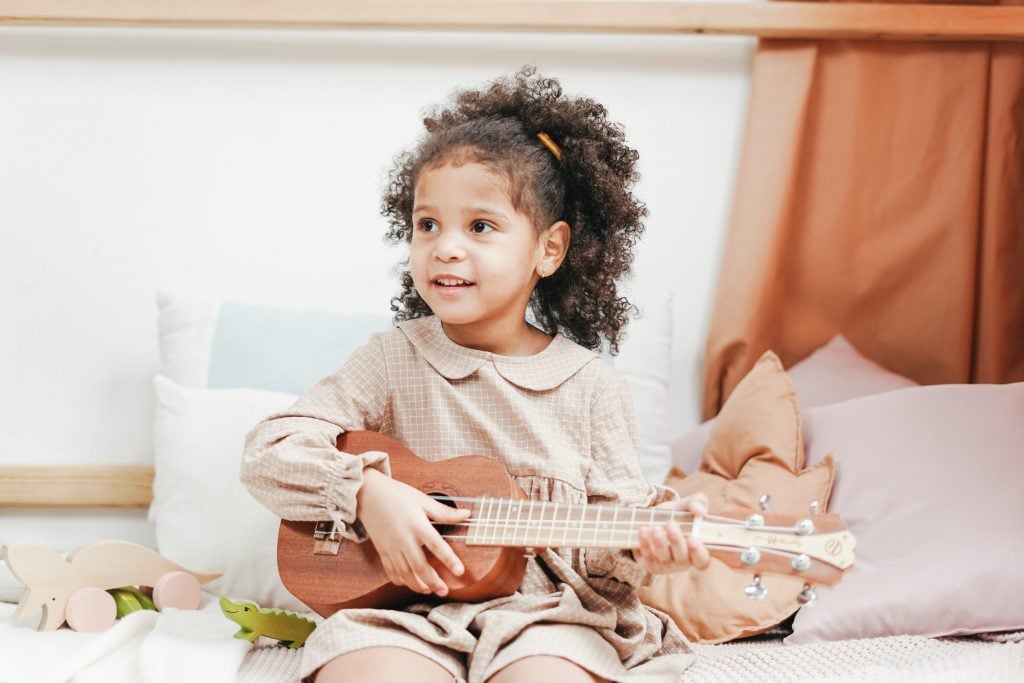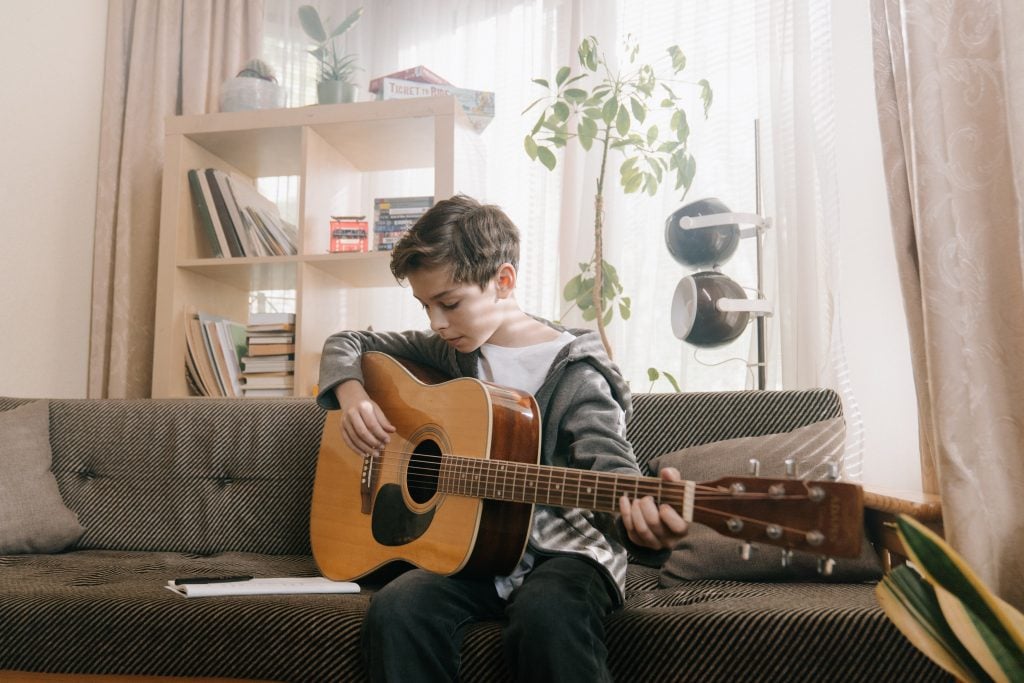Why Music Education is Vital for Your Child’s Development
“Music gives a soul to the universe, wings to the mind, and life to everything.”
Plato
You may have heard people talking in recent years about music education is in decline as a subject area in schools across the UK. Why does it matter? Why is music education so important? Well, music education offers a range of benefits beyond developing musical skills.
Read on to find how learning music affects your child’s overall development and why it’s important.
FIND A MUSIC TEACHER FOR YOUR CHILD
What Benefits Does Music Offer?
Studies have shown that learning music can have a range of positive effects on children, including:
- Improved reading & language skills
- Higher achievement
- Better personal & social skills
- Improved health & well-being

So How Does it Work?
Here’s some information on how music connects with your child’s development:
Reading & Language Skills
How on earth could learning music help with reading? Music plays a major role in developing the processing systems involved in learning to understand speech sounds and patterns. In other words, learning a melody or rhythm uses the same parts of the brain as learning to speak and read. So practising music alongside learning to speak and read can help your child to develop much quicker!
Achievement
There is lots of evidence to show that learning music connects to higher achievement. But how? Well, we already know that learning music can help develop the brain. But it also allows children to develop something Angela Duckworth categorises as ‘Grit’. Practising an extra-curricular activity in the long term help children to develop a positive relationship with hard work. There is evidence that this is carried through to their academic achievements and often their life satisfaction as adults.
Also read: 3 Simple tips: How to keep your motivation while practising
Personal & Social Skills
So we’ve heard how music can improve children’s academic progress, but many would argue that personal and social skills are just as important! Well, the good news is that music can help with that too. Not only does it provide children with fantastic opportunities to collaborate and meet new people, it also helps to develop their self-identity, confidence and emotional intelligence! These skills are essential. The earlier they develop, the better.
Health & Wellbeing
Health and well-being are, of course, at the heart of children’s development, but how does music come into it? Well, for a start, learning music has been proven to reduce stress and elevate mood. It looks after children’s mental health, which is essential as they develop. Learning to play an instrument also helps improve children’s fine motor skills. Fine motor skills are necessary for everyday actions like buttoning clothing, turning pages and using computer keyboards.
Also read: How to get in a flow

Is Music Education Being Downgraded at Your School?
Although music is part of the national curriculum for children aged 5-14, it has become limited in many schools. The focus is on subjects like maths and English, and as a result, music education suffers.
Does your child attend a school where music is not a priority? Do you want them to have access to the benefits listed above? Talk to your child about what type of instrument might be fun to try and make an enquiry with a private music teacher.
FIND A MUSIC TEACHER FOR YOUR CHILD
References Include:
“The power of music: Its impact on the intellectual, social and personal development of children and young people” by Susan Hallam of University College London
